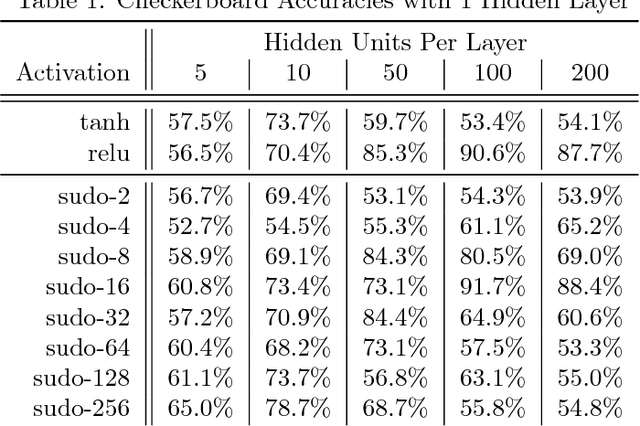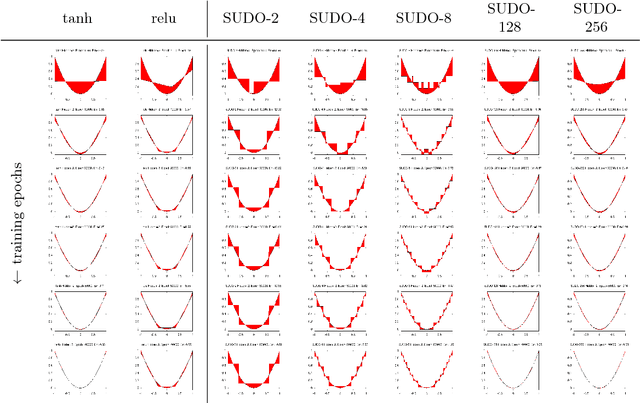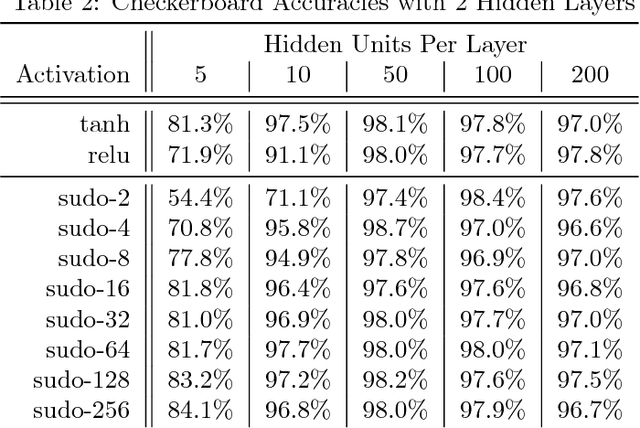Empirical Explorations in Training Networks with Discrete Activations
Paper and Code
Jan 16, 2018



We present extensive experiments training and testing hidden units in deep networks that emit only a predefined, static, number of discretized values. These units provide benefits in real-world deployment in systems in which memory and/or computation may be limited. Additionally, they are particularly well suited for use in large recurrent network models that require the maintenance of large amounts of internal state in memory. Surprisingly, we find that despite reducing the number of values that can be represented in the output activations from $2^{32}-2^{64}$ to between 64 and 256, there is little to no degradation in network performance across a variety of different settings. We investigate simple classification and regression tasks, as well as memorization and compression problems. We compare the results with more standard activations, such as tanh and relu. Unlike previous discretization studies which often concentrate only on binary units, we examine the effects of varying the number of allowed activation levels. Compared to existing approaches for discretization, the approach presented here is both conceptually and programatically simple, has no stochastic component, and allows the training, testing, and usage phases to be treated in exactly the same manner.
 Add to Chrome
Add to Chrome Add to Firefox
Add to Firefox Add to Edge
Add to Edge